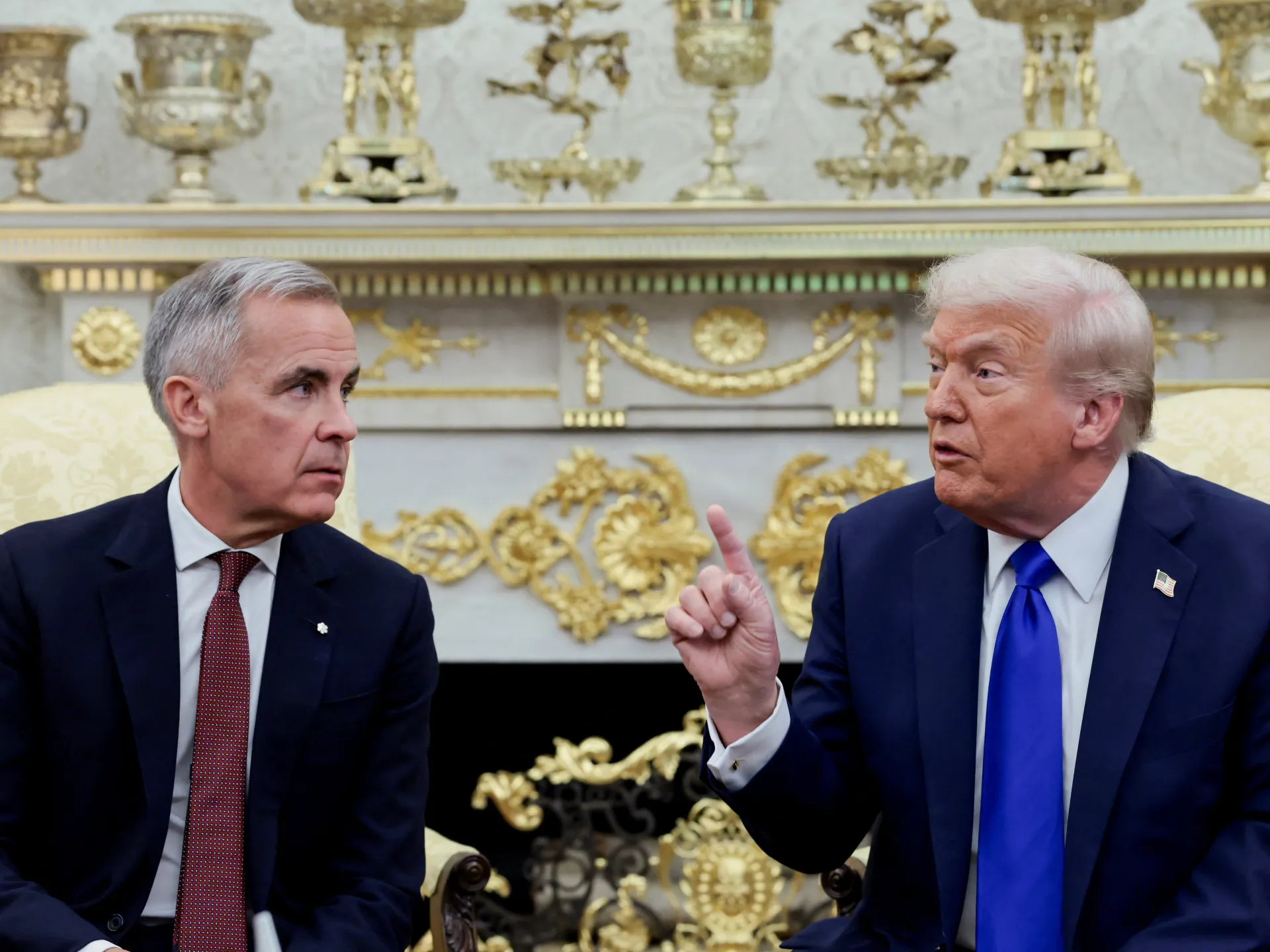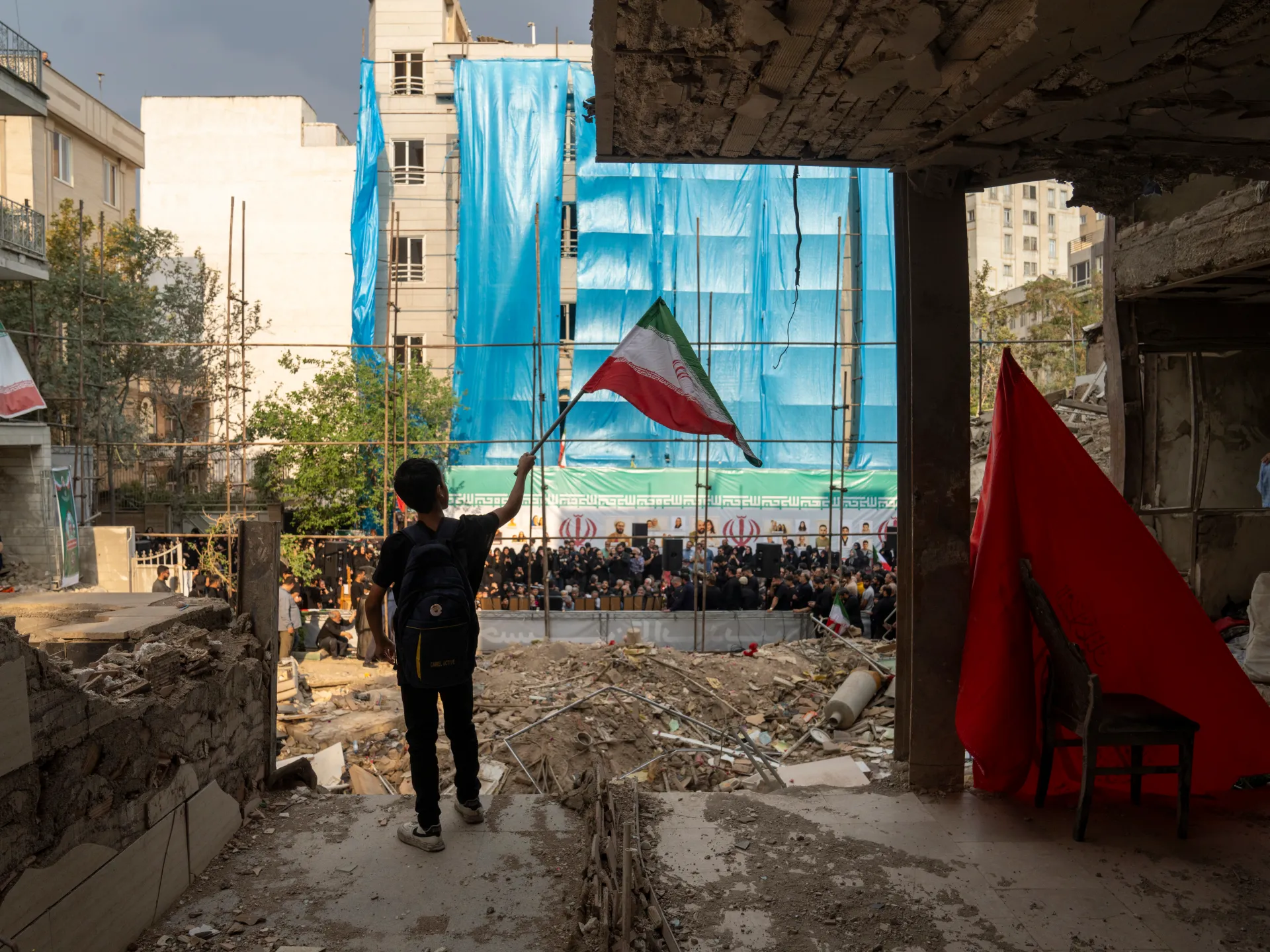Trump says trade talks with Canada terminated over Reagan advertisement | Donald Trump News
DEVELOPING STORYDEVELOPING STORY,
US president says fraudulent advertisement featuring the late President Ronald Reagan to blame for termination of talks.
Published On 24 Oct 2025
United States President Donald Trump said all trade talks with Canada have been terminated following what he called a fraudulent television advertisement in which the late President Ronald Reagan spoke negatively about tariffs.
“The Ronald Reagan Foundation has just announced that Canada has fraudulently used an advertisement, which is FAKE, featuring Ronald Reagan speaking negatively about Tariffs,” Trump wrote on his Truth Social platform late on Thursday.
Recommended Stories
list of 4 itemsend of list
“The ad was for $75,000. They only did this to interfere with the decision of the US Supreme Court, and other courts,” Trump wrote.
“Based on their egregious behavior, ALL TRADE NEGOTIATIONS WITH CANADA ARE HEREBY TERMINATED,” Trump added.
Earlier on Thursday, the Ronald Reagan Presidential Foundation & Institute said on social media that a TV advertisement created by the government of Ontario in Canada “misrepresents the ‘Presidential Radio Address to the Nation on Free and Fair Trade’ dated April 25, 1987.”
The foundation also said that Ontario had not received its permission “to use and edit the remarks” of the late US president.
The foundation added that it was “reviewing legal options in this matter” and invited the public to watch the unedited video of Reagan’s address.
Ontario’s Premier Doug Ford said earlier this week that the advertisement in question – featuring President Reagan criticising tariffs on foreign goods while saying they caused job losses and trade wars – had caught Trump’s attention.
“I heard that the president heard our ad. I’m sure he wasn’t too happy,” Ford said on Tuesday.
In an earlier post on social media, Ford posted a link to the advertisement and the message: “Using every tool we have, we’ll never stop making the case against American tariffs on Canada. The way to prosperity is by working together,” he said.
It’s official: Ontario’s new advertising campaign in the U.S. has launched.
Using every tool we have, we’ll never stop making the case against American tariffs on Canada. The way to prosperity is by working together.
Watch our new ad. pic.twitter.com/SgIVC1cqMJ
— Doug Ford (@fordnation) October 16, 2025
Trump’s announcement on the end of trade talks also followed after Canadian Prime Minister Mark Carney said he aimed to double his country’s exports to countries outside the US because of the threat posed by the Trump administration’s tariffs.
Carney also told reporters that Canada would not allow unfair US access to its markets if talks on various trade deals with Washington fail.
Canada and the US have been in talks for weeks on a potential deal after Trump imposed tariffs on Canadian steel, aluminium and autos earlier this year, prompting Canada to respond in kind.
The Canadian prime minister’s office did not immediately respond to a request for comment on Trump’s announcement that all talks had ended because of the advertisement.
More than three-quarters of Canadian exports go to the US, and nearly 3.6 billion Canadian dollars ($2.7bn) worth of goods and services cross the border daily.

